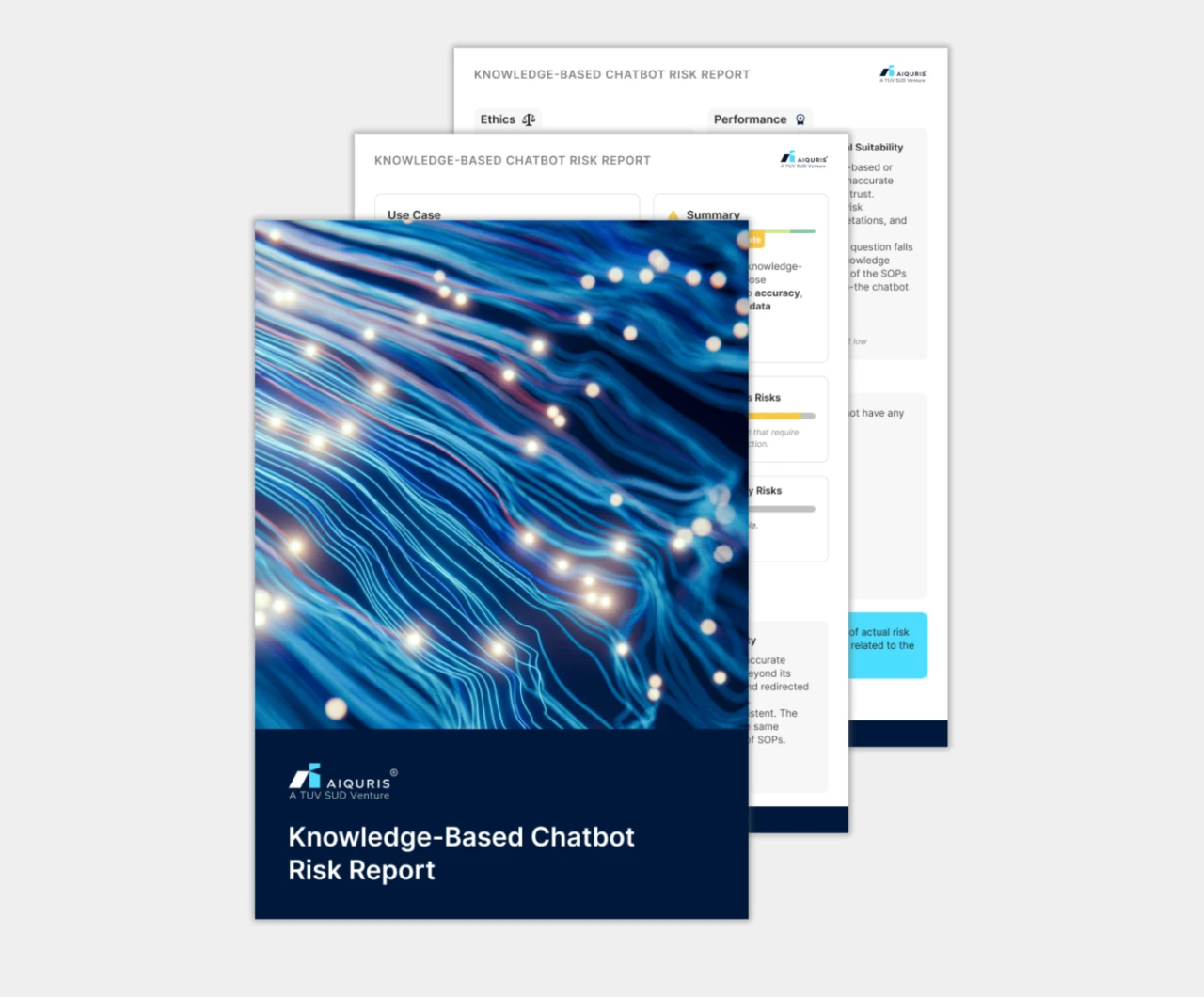AI technologies are rapidly spreading across industries. This growth makes the overlap of AI governance and data privacy regulation critical. The General Data Protection Regulation (GDPR), implemented by the European Union in May 2018, provides a robust framework to ensure personal data protection while promoting responsible AI use. Non-compliance can lead to massive fines as seen with META's $1.3 billion fine for breaching GDPR regulations.1 This article explores GDPR compliance strategies specific to AI applications, addressing challenges, best practices, and the role of solutions like AIQURIS ® in facilitating compliance.
Overview of GDPR's Relevance to AI
The GDPR establishes guidelines governing how organisations collect, process, and manage personal data, particularly as AI systems often rely on large datasets. Key principles such as data minimisation, transparency, and accountability are foundational to both GDPR and ethical AI practices2.
Understanding the broader relevance of GDPR to AI is vital. To delve deeper, let’s look at the GDPR articles that directly impact AI-driven processes.
Specific Articles Relevant to AI
-
Article 5: Establishes core principles such as lawfulness, fairness, and transparency in processing personal data.
-
Article 22: Addresses automated decision-making and profiling, granting individuals rights against decisions made solely based on automated processes.
-
Article 35: Mandates Data Protection Impact Assessments (DPIAs) when processing activities present high risks to individual rights and freedoms, especially relevant for AI technologies.3
Current Challenges in AI-GDPR Compliance
Organisations face hurdles in ensuring GDPR compliance within their AI projects. Notably, the opaque nature of many machine learning models complicates adherence to transparency requirements. For instance, TechTarget highlights concerns regarding algorithmic bias and the need for explicit guidance from regulators to mitigate these issues4. Additionally, scrutiny over AI implementations, such as OpenAI's ChatGPT facing bans due to privacy violations, showcases the necessity for continuous vigilance in complying with GDPR standards5. Countries leading AI regulation efforts include EU member states, the United Kingdom, Singapore and Canada, all proactive in establishing frameworks that govern data usage and AI developments. While current challenges highlight significant hurdles, evolving regulatory frameworks are poised to reshape AI adoption. Let’s explore how these changes are influencing compliance strategies.
Regulatory Changes and Their Impact on AI Adoption
Recent regulatory changes highlight the need for proactive compliance in AI adoption. The proposed European Union AI Act is set to create a comprehensive legal framework to regulate AI technologies, ensuring they are both innovative and respectful of fundamental rights6. Businesses should proactively conduct AI risk assessments and integrate compliance software. This evolving landscape compels organisations to adapt quickly or risk penalties for non-compliance.
Practical Guidance for GDPR Compliance in AI
To thrive in this environment, organisations should adopt comprehensive compliance strategies:
-
Conduct Detailed DPIAs (Data Protection Impact Assessments): Regularly assess the impact of AI initiatives on personal data rights, identifying and mitigating potential risks early in the development phases.
-
Implement Privacy by Design: Integrate data protection measures during the initial stages of AI system design, embedding security features throughout the lifecycle7. Privacy should be a core principle and considered in every aspect of the system’s design and operation8.
-
Enhance Transparency Protocols: Clearly communicate how personal data will be processed and provide accessible explanations about AI-driven decisions, fostering trust among users. GDPR mandates that users be informed about the reasoning behind AI-driven choices, revealing how the AI system processes data and makes decisions9.
-
Establish Robust Data Governance Standards: Define clear policies regarding data collection, storage, and management to uphold GDPR compliance and minimise risk exposure. These standards need to detail how data is gathered, analyzed, stored and used within AI systems. Such governance lets all stakeholders, from developers to end-users, understand their duties in upholding data accuracy and privacy.
-
Regular Training and Awareness Programmes: Ensure staff involved in AI projects understand GDPR obligations and ethical AI practices, cultivating a culture of privacy awareness within the organisation.
-
Key Actions for Compliance Officers and Legal Counsels: Compliance officers must stay updated on regulatory shifts, conduct regular audits of AI systems, and implement training sessions covering new regulations, particularly those concerning the upcoming EU AI Act.
AIQURIS ®: A Solution for Navigating Compliance Challenges
For organisations seeking to deploy AI responsibly while adhering to GDPR and other global data protection regulations, AIQURIS ® delivers comprehensive, automated compliance capabilities across every stage of AI deployment. Leveraging real‐time regulatory updates and providing full visibility into data handling processes, AIQURIS ® enables businesses to actively monitor their compliance status and proactively address potential risks associated with AI applications.
AIQURIS ® goes beyond basic compliance tracking—it automates risk profiling across six key pillars (Safety, Security, Legal, Ethics, Performance, and Sustainability), dynamically generates regulatory requirements, and continuously assesses risk exposure. Additionally, it tracks mitigation efforts and maintains detailed documentation essential for regulatory audits.
With the capability to streamline Data Protection Impact Assessments (DPIAs) and generate standardised AI adoption agreements, AIQURIS ® ensures that every facet of your AI deployment remains transparent, compliant, and well-documented. By automating compliance tracking and risk management workflows, AIQURIS ® empowers organisations to scale their AI initiatives confidently and sustainably, reducing uncertainty and aligning operations with internationally recognised standards.
Conclusion
As the dialogue around AI governance evolves, so must our approach to GDPR compliance. Organisations leveraging AI must prioritise implementing effective compliance strategies that align with regulatory expectations while safeguarding individual rights. AIQURIS ® serves as a critical partner in navigating this complex terrain, enabling organisations to harness the power of AI while remaining compliant with GDPR standards.
Ensure your AI models are compliant and aligned with the GDPR standards. Talk to an expert today






